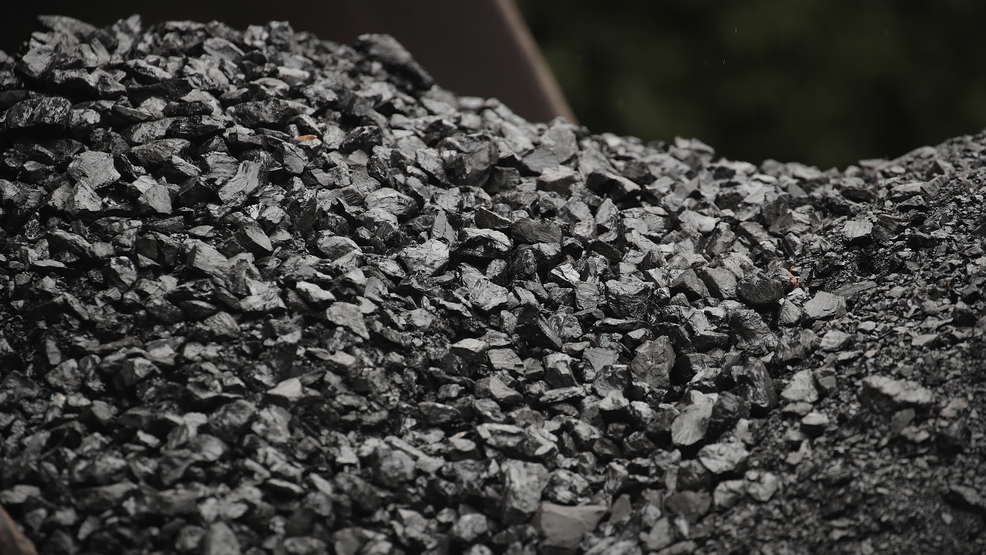Virginia Coal Company Convicted of Cheating Safety Regulations

By Paul Hess
May 6, 2020 - A Grundy coal company, its owner and a foreman have admitted to cheating on dust sampling regulations.
D&H Mining, Inc. entered a guilty plea "to one felony count of conspiracy to defraud the United States for dust sampling fraud," according to U.S. Attorney Thomas Cullen. It also pleaded guilty to a misdemeanor charge for allowing workers to "conduct roof-bolting in return air;" which is a MSHA (Mine Safety and Health Administration) violation.

D&H owner Daniel Tucker and company foreman Gerald Ball each entered a plea to one felony count of conspiracy to commit dust sampling fraud.
Tucker has agreed to pay an $80,000 fine. He and Ball will be sentenced on August 11.
ORIGINAL STORY:
A Grundy, Va., coal company, its owner, and one of its foremen pleaded guilty today in U.S. District Court in Abingdon to conspiring to defraud the United States by cheating on underground coal mine dust sampling procedures under the Federal Mine Safety and Health Act. United States Attorney Thomas T. Cullen and Assistant Secretary of Labor for the Mine Safety and Health Administration (MSHA) David G. Zatezalo announced the guilty plea today.
“Coal mining, by its nature, is a hazardous occupation, and federal health and safety laws play a critical role in reducing the dangers miners face on a daily basis,” U.S. Attorney Cullen said today. “We will continue to work closely with MSHA to ensure that mine owners and operators play by these important rules, and, when they don’t, hold them accountable under federal law.”
“These prosecutions are a milestone in MSHA’s vigorous enforcement of the 2014 Respirable Coal Dust Rule. When mining companies ignore the dust sampling rules and try to cheat the system, they place miners at risk. Without accurate samples, we don’t know the levels of respirable coal dust in which miners are forced to work. But we do know that reducing respirable coal dust is central in our efforts to reduce pneumoconiosis and silicosis for the nation’s coal miners. MSHA applauds the Department of Justice for its hard work in showing that violating the law has consequences,” Zatezalo said.
D&H Mining, Inc. pleaded guilty to one felony count of conspiracy to defraud the United States for the dust sampling fraud. D&H Mining also pleaded guilty to a misdemeanor violation of the Mine Act for willfully allowing miners to conduct roof-bolting in return air in violation of the mine’s MSHA-approved ventilation plan.
Daniel Tucker, the owner of D&H Mining and Gerald Ball, a foreman, also pleaded guilty to one felony count of conspiracy to commit dust sampling fraud.
According to court documents, Tucker and Ball conspired to defraud MSHA by taking personal dust monitors off miners before the end of the shift and hanging them in clean air, programming the monitors to shut off before the end of a shift, and submitting false reports to MSHA.
Pursuant to the terms of his plea agreement, Tucker will pay $80,000 as a criminal fine within 60 days of his plea. The district court will sentence D&H Mining, Tucker, and Ball on August 11, 2020.
From May 2017 to August 2019, Tucker repeatedly programmed personal dust monitors that miners must wear the entire time they are underground while conducting required dust sampling to automatically shut off after 9 hours despite running shifts of 10 hours. Ball removed personal dust monitors from miners working underground in dusty conditions and hung them in areas of the mine with clean air in an attempt to prevent the devices from registering elevated levels of respirable dust in the working areas of the mine. MSHA’s dust sampling regulations are designed to reduce the level of respirable coal dust in mines to reduce the risk of miners developing pneumoconiosis (“black lung”) and silicosis, the most common coalmine dust-caused diseases. D&H Mining further allowed miners to conduct roof-bolting operations in return dirty air despite its ventilation plan.
The investigation of the case was conducted by the Norton Office of the Mine Safety and Health Administration. Special Assistant United States Attorney Jason Grover from the Department of Labor and Assistant United States Attorneys Lena Busscher and Randy Ramseyer prosecuted the case for the United States.

